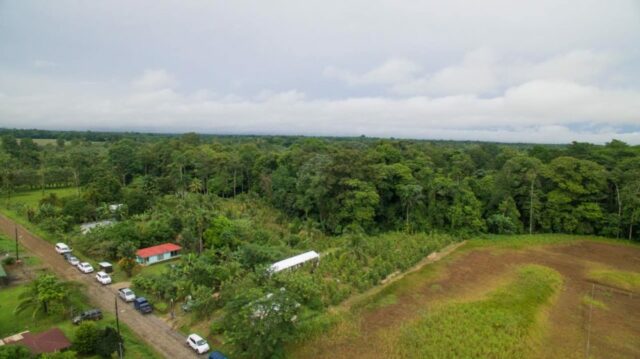
Costa Rica reported this Wednesday that tourists will be able to offset the carbon footprint generated in air flights and land travel to support a green economy that the country promotes internationally.
The Costa Rican Tourism Institute (ICT) and the National Forestry Financing Fund indicated in a press release that the objective is to facilitate the raising of financial resources for the Payment of the Environmental Services Program (PSA). The initiative will promote tree planting, protection of watersheds, natural regeneration, as well as agroforestry systems on farms.
“This agreement invites our tourists to mitigate their trips and thus contribute to the protection of forests and the recovery of forest cover (…) It is a step forward in responsible tourism,” said the Minister of Tourism, Gustavo Segura.
The tourism development model of Costa Rica is based on sustainability, which includes three fundamental axes: the environmental, economic, and sociocultural part, which seek to generate well-being for the communities while respecting their identity and where the cultural factor is a differentiating element. The Central American country is a world leader in renewable energies, promotes a plan to decarbonize the economy, and has under the protection of 26% of its forest area.

For Minister Segura, it is an ambitious project because Costa Rica is “perceived as a society that honors nature in its territory: protects, cares for and shares, enhances the human well-being of its citizens, described as friendly, hospitable and happy people”.
According to calculations made by the ICT, with visitation data from 2018, assuming that only 10% of the emissions calculated were offset (476,541), annual fundraising of $ 3,574,063 would be achieved, with which more than million and a half trees in agroforestry systems, about 14,000 hectares could be planted.
A green engine
“This program is a green engine for the sustainable economic recovery of Costa Rica. The arrival of visitors to the country benefits the ecotourism sector and the money that comes in from offsetting its emissions strengthens forest conservation and the families that depend on this incentive,” said the Minister of Environment and Energy, Andrea Meza. For the Costa Rican authorities, it is vital to start taking measures to address air emissions from tourists and seek additional benefits for their compensation.
The Program for Payment of Environmental Services (PPSA) is a financing mechanism for the management, conservation, and sustainable development of forest resources and biodiversity.
Between 1997 and 2019, the programs of the National Forest Financing Fund have recovered a forest cover of 1,311,764 hectares and from 2003 to 2019, more than 8 million trees were planted in agroforestry systems.

